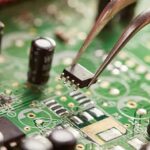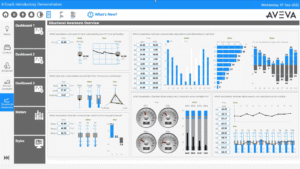Gaming PCs are precision machines built for performance, speed, and high-level graphics processing. When something goes wrong, even minor issues can bring the gaming experience to a screeching halt. For serious gamers, any downtime can be frustrating—especially if it interferes with competitive gameplay or streaming schedules. Understanding the common problems that affect gaming computers and how they can be resolved is crucial for extending the lifespan of your rig. From overheating to frame drops, connectivity hiccups, or failing components, these systems demand proper care and timely maintenance. This article explores some of the most frequent gaming PC issues and how professionals and users alike can fix them effectively.
Overheating and Thermal Throttling
One of the most common complaints from gaming PC users is excessive heat during extended gaming sessions. High-performance graphics cards, multi-core processors, and RGB lighting contribute significantly to increased thermal output. When internal components overheat, performance suffers through a process known as thermal throttling, where the system slows itself down to cool off. Over time, this can degrade hardware and lead to random shutdowns or blue screens.
Solutions range from cleaning internal fans and applying fresh thermal paste to installing advanced cooling systems like liquid cooling or adding extra case fans. Professional diagnostics can determine whether there’s an airflow issue or if component replacements are necessary.
Lag, Frame Drops, and Slow Rendering
Experiencing lag or sudden frame drops in a high-end gaming PC can be both confusing and infuriating. These symptoms are often caused by outdated drivers, insufficient RAM, or overloaded background processes. Poor network performance can also mimic hardware issues by disrupting online gameplay.
Fixing this usually involves updating graphics drivers, optimizing system settings, and sometimes upgrading the GPU or RAM. In some cases, viruses or malware can hog system resources, so a full system scan is also recommended. Gaming optimization software can help but should be used judiciously to avoid unnecessary bloat.
Blue Screen Crashes and Boot Errors
A dreaded blue screen (BSOD) mid-game often indicates hardware or software conflicts, corrupted drivers, or failing memory modules. While some crashes are one-offs, recurring errors suggest deeper issues within the operating system or hardware.
System logs and memory dump files can offer clues about the source of the problem. Diagnosing boot errors may require booting in safe mode, restoring system files, or running memory and disk diagnostics. In cases where system files are damaged beyond recovery, a clean Windows reinstall may be the only option. It’s important to back up game saves and key data before attempting any resets.
Graphics Card Failures
Graphics cards are the heart of any gaming PC. They power the visuals that make modern games come alive. When a GPU starts failing, signs may include screen artifacts, color distortion, stuttering, or complete display blackouts. Overheating, poor power supply, or incompatible drivers can all be culprits.
Repairing GPU issues involves cleaning the card, reseating it, checking for thermal issues, and testing it with benchmarking tools. If these fixes don’t work, replacing the card is usually the last resort. GPU failure is serious and often signals the need for professional evaluation, especially since high-end graphics cards are expensive and sensitive.
Power Supply Problems
The power supply unit (PSU) is often overlooked in a gaming PC, but it’s absolutely essential. An unstable PSU can cause random shutdowns, failure to boot, or component damage over time. Underpowered or failing PSUs are particularly common in custom-built gaming rigs.
A multimeter test or a PSU tester can help diagnose problems. If the system requires more wattage than the current PSU can handle, upgrading to a higher wattage model with stable output is necessary. For gamers using overclocked components, PSU capacity should always exceed system demands.
Storage Malfunctions and Game Load Delays
Games today are massive, some exceeding 100GB. If your SSD or HDD is malfunctioning or nearing full capacity, game load times can spike. Fragmented drives, bad sectors, or failing hardware can make it difficult for the system to read game data quickly.
Fixes include running disk checks, replacing old HDDs with SSDs, and organizing game storage to distribute the load. An SSD upgrade dramatically reduces load times and improves overall system responsiveness, especially in open-world or graphically intense games.
Peripheral and USB Port Issues
Gaming PCs often support a wide range of peripherals, from specialized keyboards and mice to racing wheels, VR headsets, and streaming gear. Faulty USB ports, outdated firmware, or software conflicts can lead to detection issues or disconnections during gameplay.
Testing peripherals on different systems and updating firmware can help identify whether the issue lies with the peripheral or the PC itself. If USB ports are the problem, motherboard repairs or expansions might be required. Keeping BIOS and chipset drivers up to date is also critical for consistent performance.
Connectivity Troubles with Online Games
Online multiplayer games rely on low-latency, high-speed internet connections. If a gaming PC struggles with connectivity, users may experience rubber-banding, disconnections, or lag spikes. Faulty Ethernet ports, misconfigured network settings, or outdated network drivers can all contribute.
Solutions include resetting network configurations, using Ethernet instead of Wi-Fi, and upgrading routers. Gamers who stream or use VoIP simultaneously may benefit from network prioritization settings, known as QoS (Quality of Service), available in most modern routers.
BIOS and Firmware Incompatibilities
Gaming PCs often feature cutting-edge hardware that requires frequent BIOS and firmware updates to stay compatible with new drivers and operating systems. Outdated BIOS can cause hardware incompatibilities, boot failures, or unexplained lag.
Flashing a BIOS carries risks, but it can resolve many obscure hardware conflicts. Only proceed with BIOS updates if you’re confident or under professional guidance. Firmware updates for SSDs, GPUs, and other peripherals should also be checked periodically.
PC Repair Services in Weston, FL
Local support can make all the difference when you’re facing complex gaming PC issues. Whether you’re dealing with hardware failures or intricate software glitches, turning to pc repair services in Weston, FL offers convenience, speed, and expert insights. These services often include diagnostics, parts replacement, and performance optimization specifically tailored to high-performance gaming rigs. Technicians can assist with overclocking safely, installing cooling solutions, or even customizing RGB setups to elevate your gaming experience.
Routine Maintenance and Preventive Care
Avoiding gaming PC issues altogether is possible with regular maintenance. Dust accumulation is a silent performance killer, and neglected thermal paste can cause gradual overheating. Even high-end setups need periodic care to maintain optimal performance.
Maintenance steps include scheduled cleanings, software audits, BIOS updates, and ensuring no unnecessary background processes are eating up system resources. Gamers who stream should also check for software conflicts between capture software and game clients. Having a routine maintenance schedule prolongs the life of every component in your build.
Conclusion
Gaming PCs deliver incredible performance when everything is running smoothly, but they are also sensitive machines prone to specific issues. From overheating and GPU failures to boot errors and connection troubles, knowing how to identify and fix these problems ensures less downtime and better gameplay. Leveraging expert help, like trusted pc repair services in Weston, FL, can also make the difference between a temporary fix and a long-term solution. Whether you’re a competitive gamer or a weekend warrior, investing in your PC’s health is essential to uninterrupted performance and enjoyment.
Introducing Elite Repairs — your trusted partner for all computer repair needs in Weston. At Elite Repairs, we offer specialized and detailed services for your PC, laptop, MacBook, and iMac, delivered by our highly skilled technicians. We handle the most up-to-date devices with precision and care, ensuring your technology remains in peak condition.
- Gaming PC Repair: Common Issues and Fixes
- Gaming PCs are precision machines built for performance, speed, and high-level graphics processing. When something goes wrong, even minor issues can bring the gaming experience to a screeching halt.
- pc repair services
Related posts:
 Why KBH Games Is Perfect for Family-Friendly Online Entertainment
Why KBH Games Is Perfect for Family-Friendly Online Entertainment
 Build a Seamless School Portal with These Powerful Templates
Build a Seamless School Portal with These Powerful Templates
 7 Ways Aerospace Companies Are Using Composites to Elevate Aerial Robotics
7 Ways Aerospace Companies Are Using Composites to Elevate Aerial Robotics
 Samsung Galaxy S24 Ultra Price in Pakistan: A Closer Look at the Mid-Range Marvel
Samsung Galaxy S24 Ultra Price in Pakistan: A Closer Look at the Mid-Range Marvel
 The Ultimate Web Development Checklist for Building High-Performance Digital Experiences
The Ultimate Web Development Checklist for Building High-Performance Digital Experiences
 2025’s Best Tablets in Pakistan for Performance and cheap Price
2025’s Best Tablets in Pakistan for Performance and cheap Price
 10 Local SEO Tips to Boost Your Electronics Repair Shop Online
10 Local SEO Tips to Boost Your Electronics Repair Shop Online
 Optimizing Healthcare Operations in Qatar Through Dynamics 365 Finance and Operations
Optimizing Healthcare Operations in Qatar Through Dynamics 365 Finance and Operations







